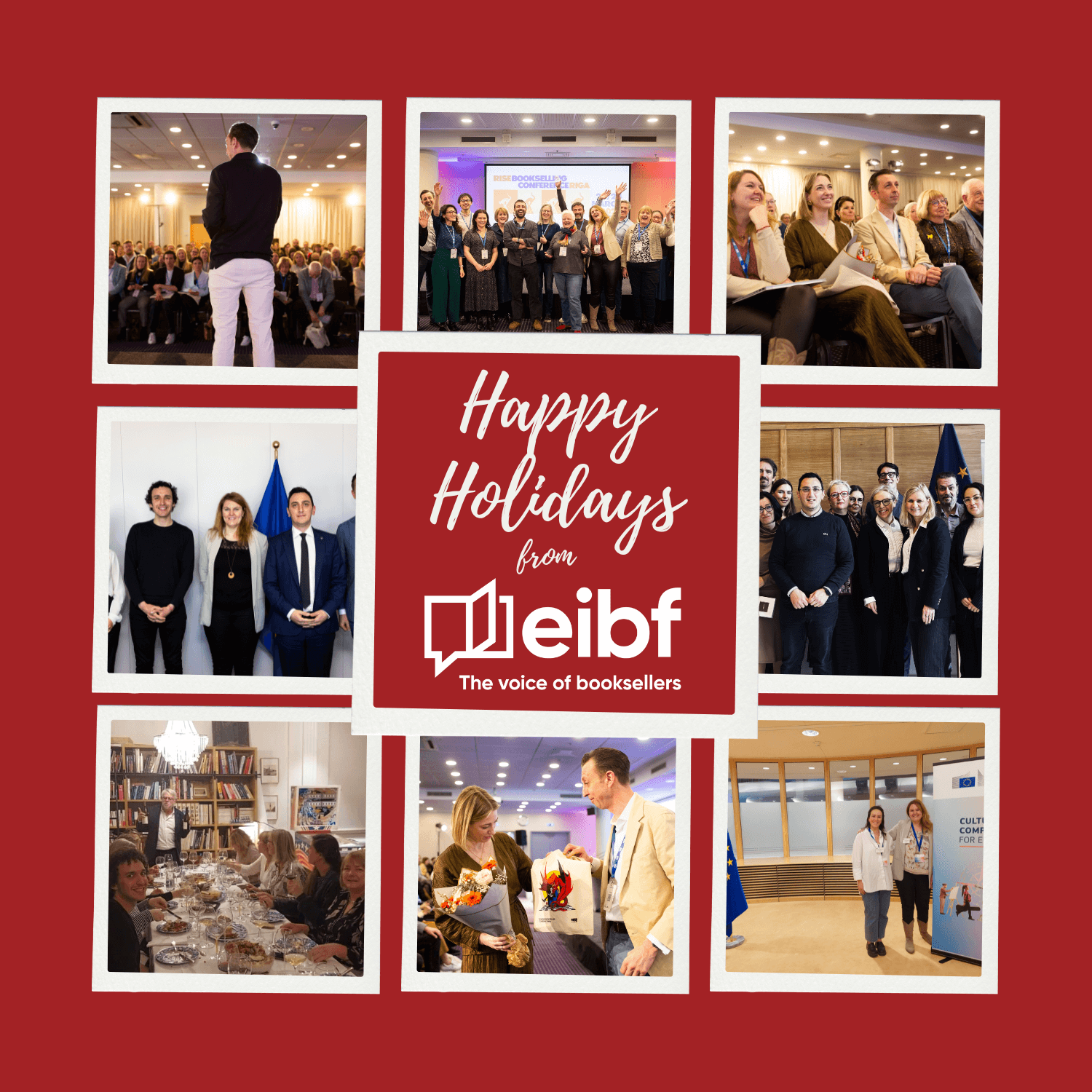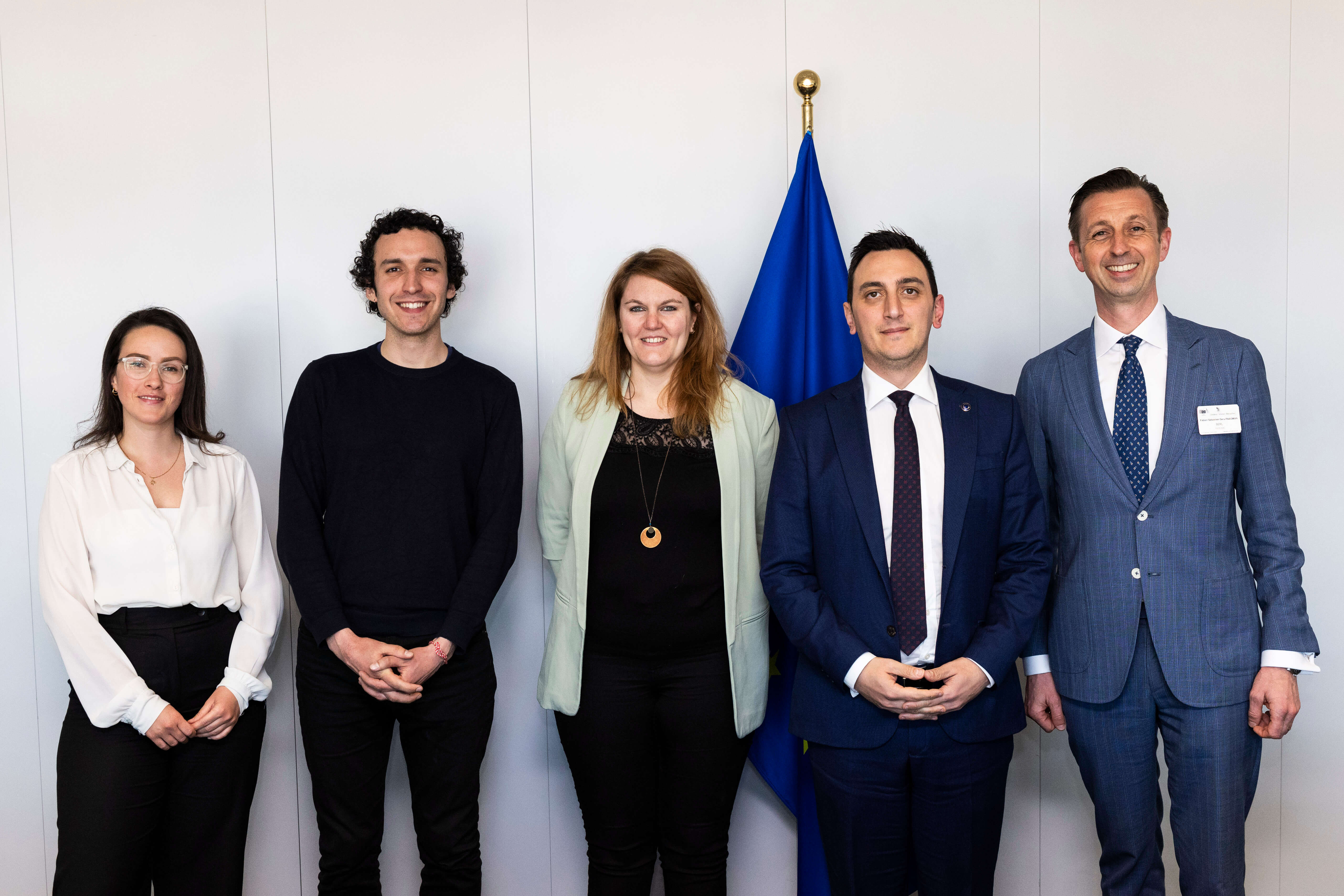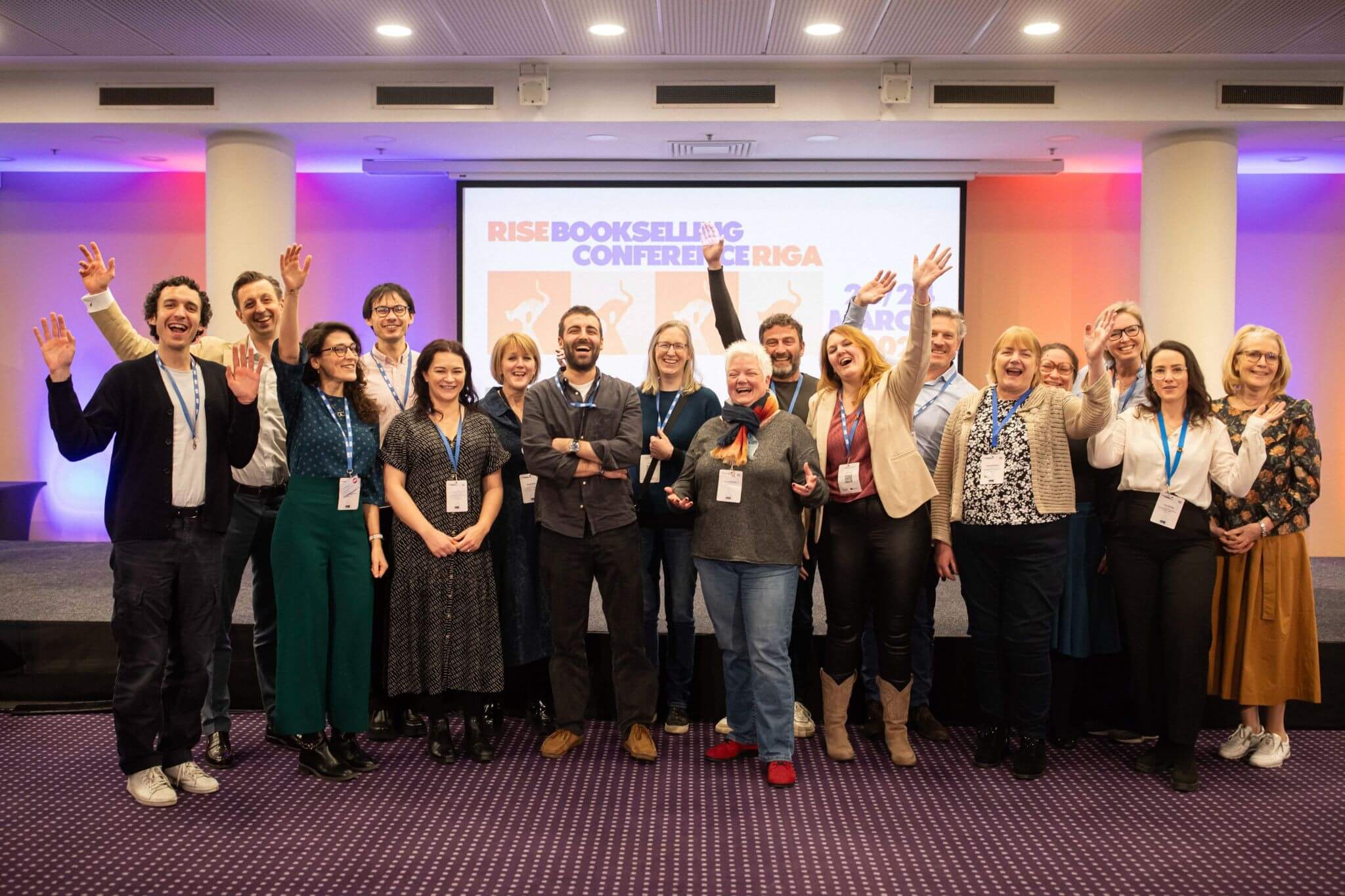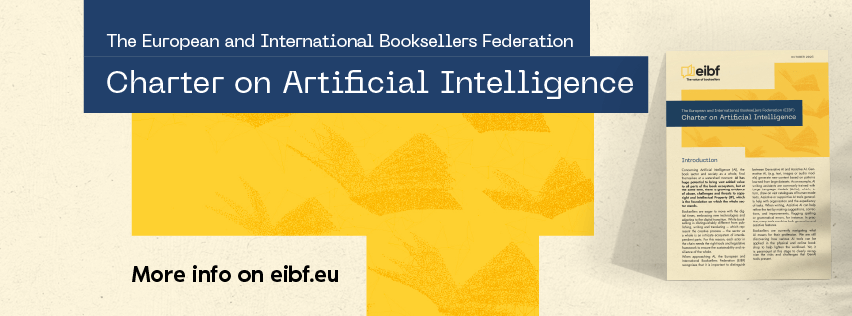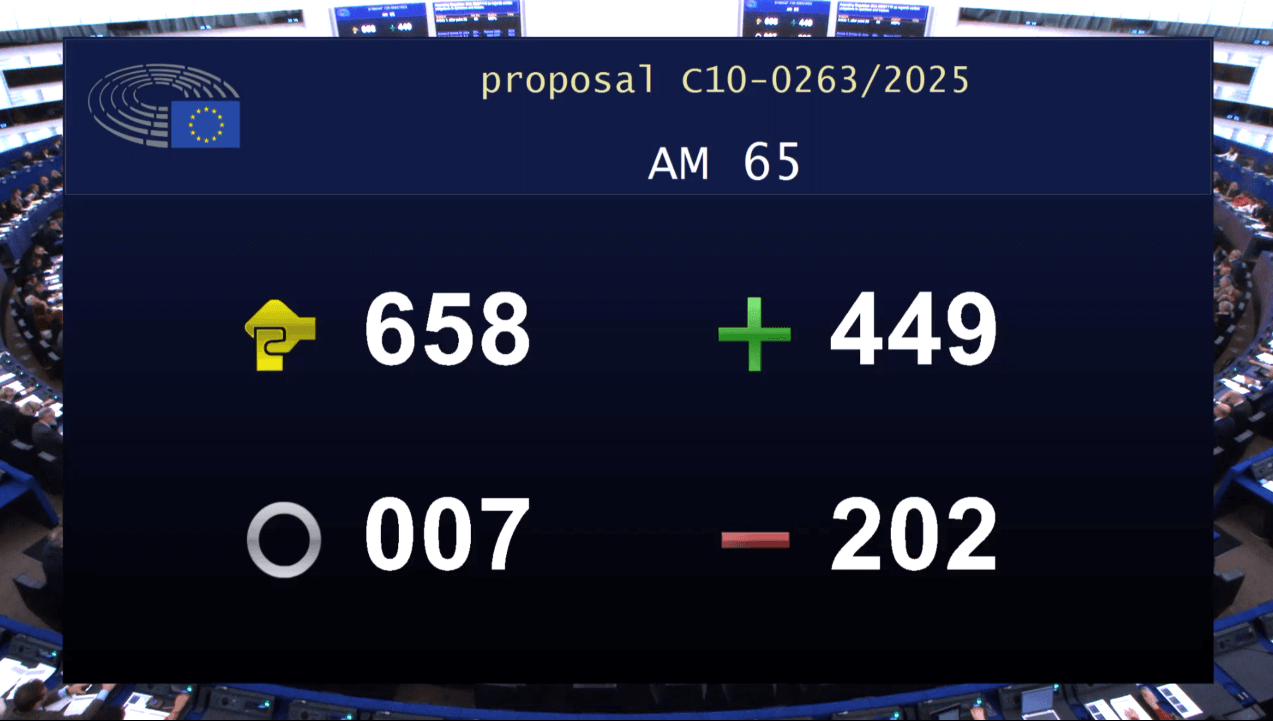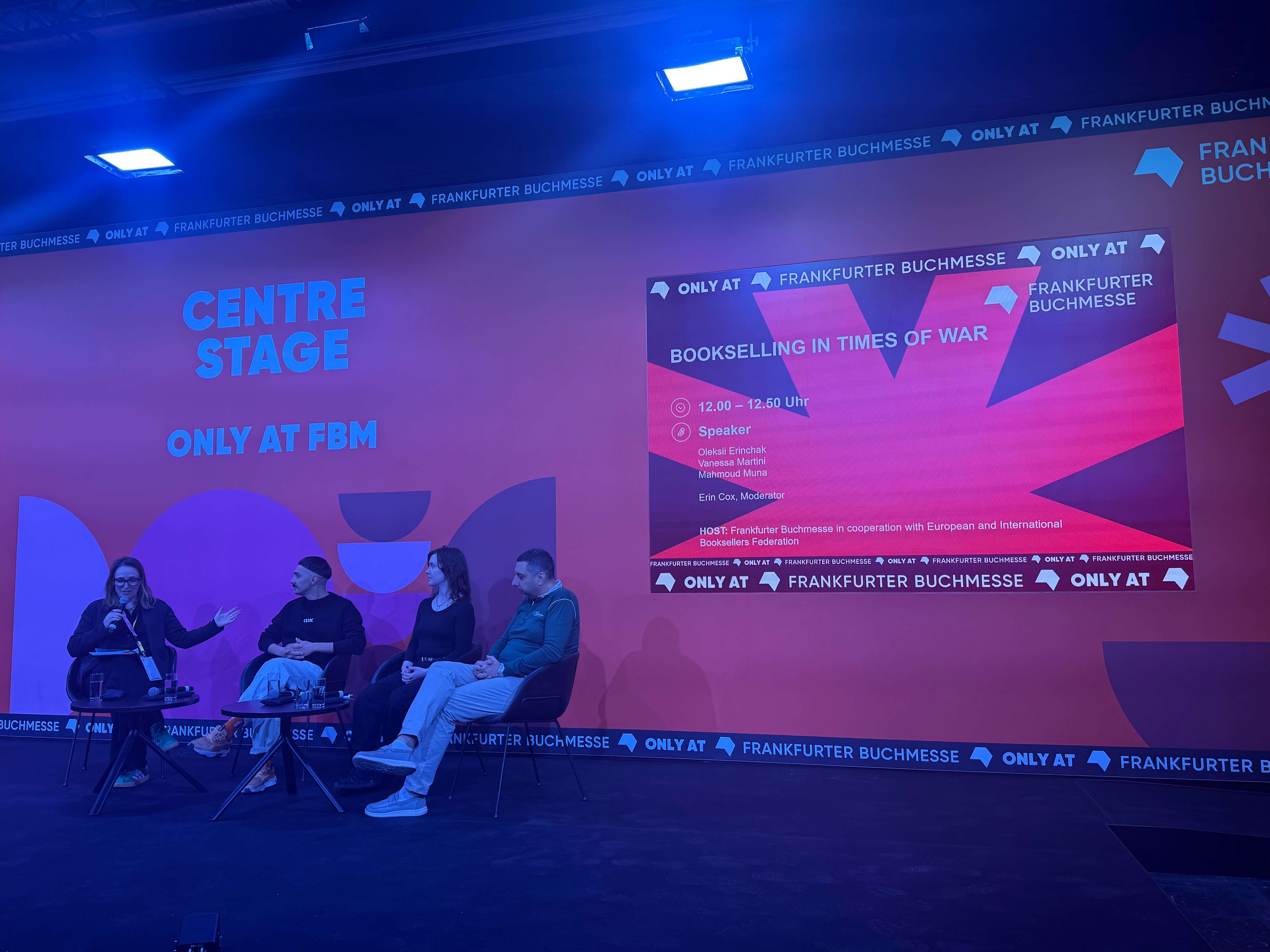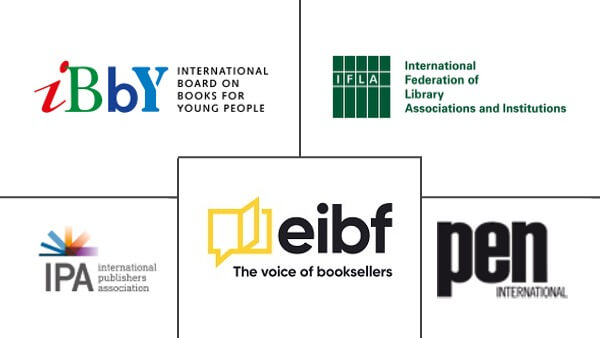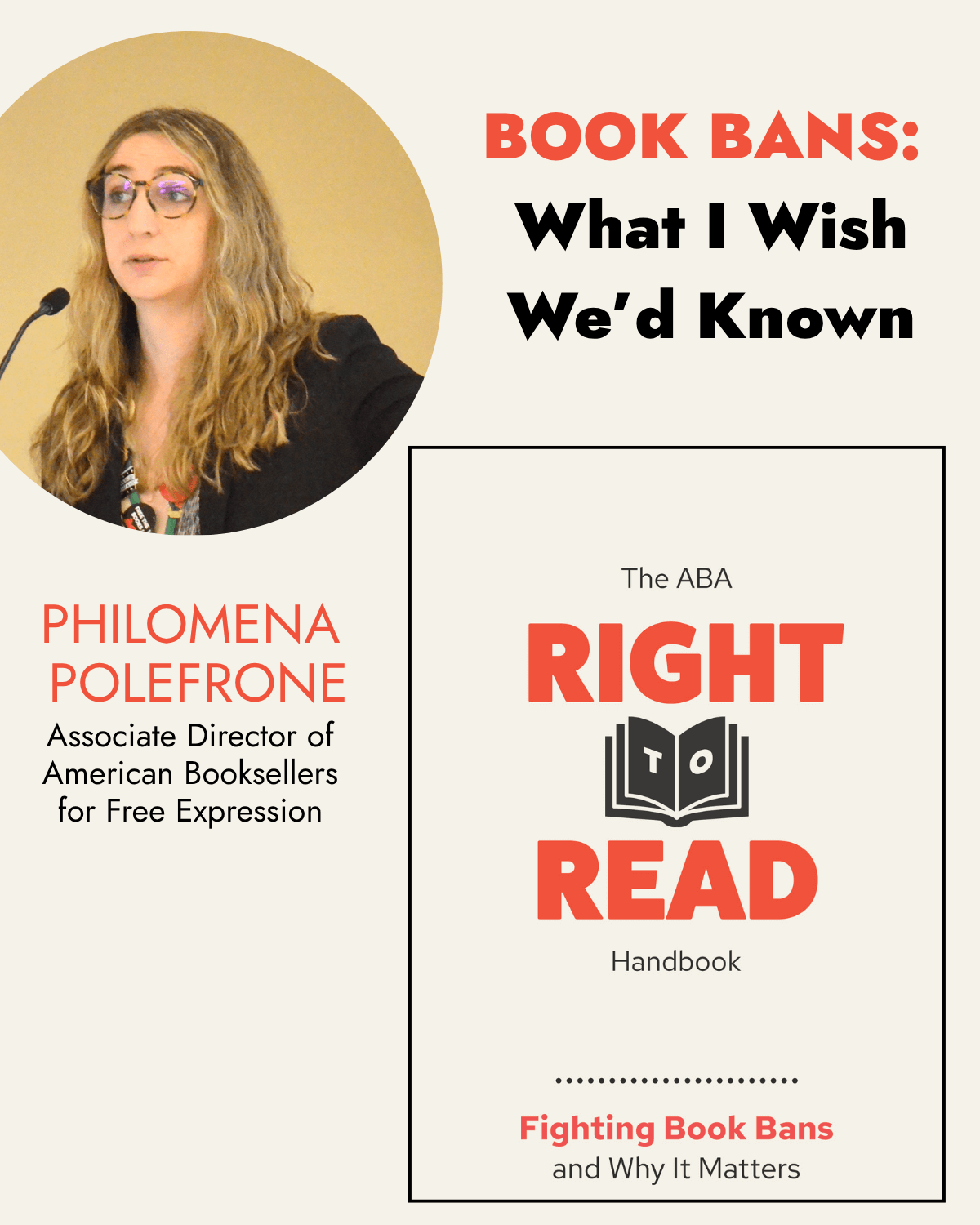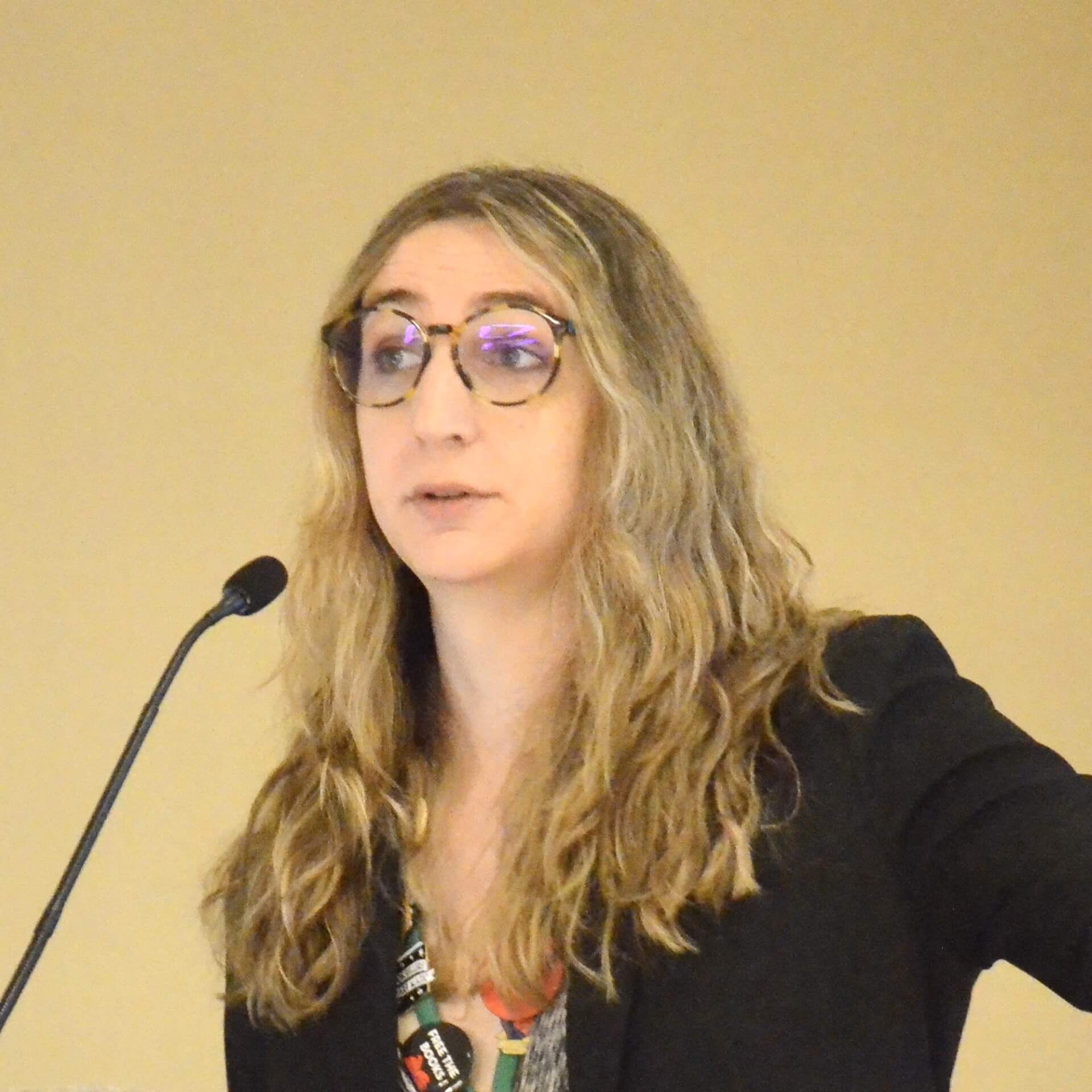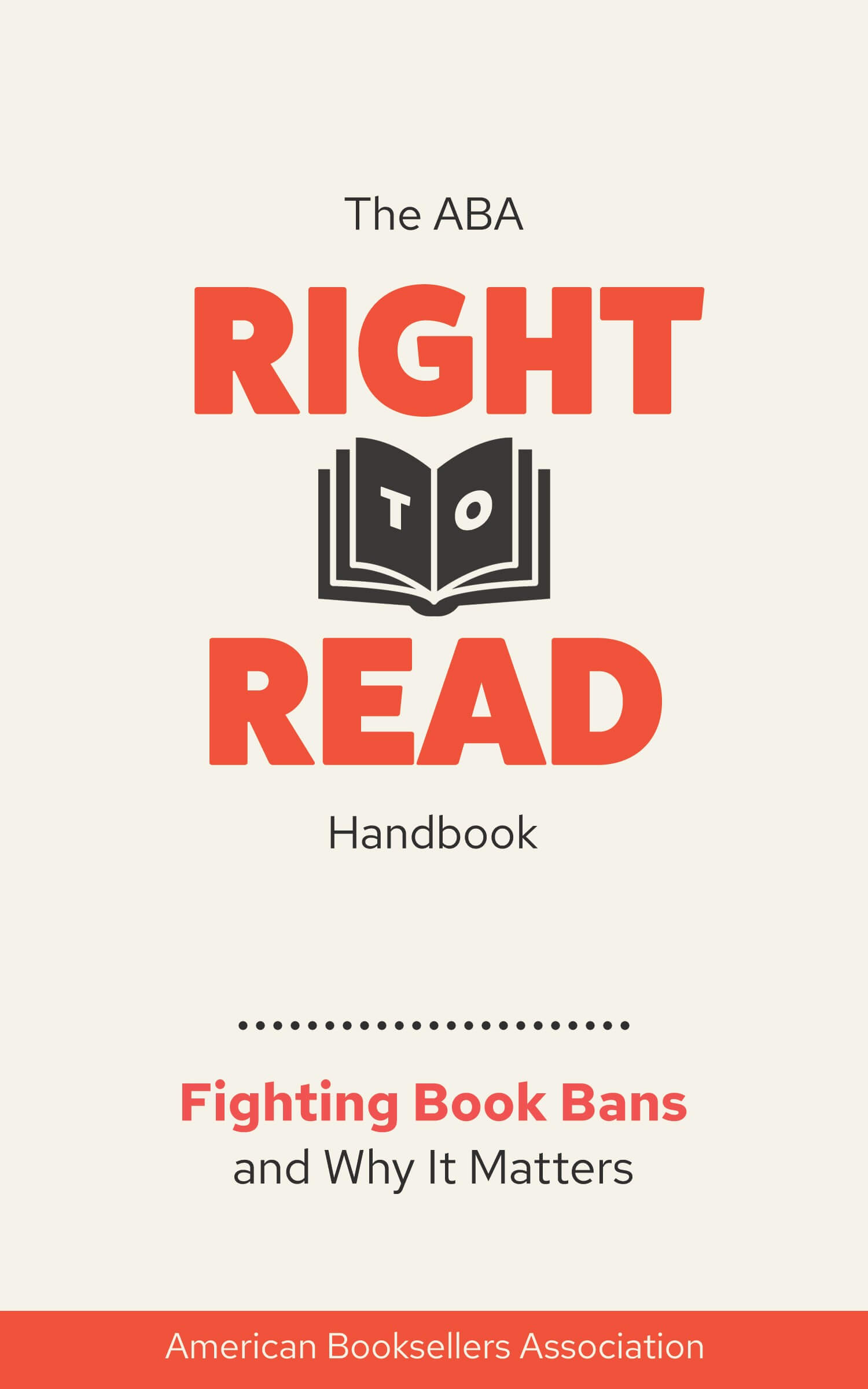EIBF outlines goals and visions for 2026

The start of a new year is always a moment for reflection, a time to take stock and to consider where our efforts should be directed in the months ahead. For us at the European and International Booksellers Federation (EIBF), the vision for our work was clearly set out by EIBF President, Fabian Paagman, this past autumn during the European Book Sector event we organised under the framework of the European Union Prize for Literature (EUPL). Here below, you can read Fabian Paagman’s contribution to the debate, outlining EIBF’s core principles and vision.
Shaping the future of EU book policy: EIBF contribution
It is a pleasure to be here with you today to reflect on the future of European legislation and regulation for the book sector, and to highlight the priorities that the European and International Booksellers Federation, the EIBF, is advocating for in its dialogue with policymakers at the European Commission.
Booksellers across Europe face both opportunities and challenges in a fast-changing world. The sector represents not only an economic activity, but also a vital cultural service that underpins literacy, freedom of expression, and community life. To ensure that this role can continue to thrive, we need a policy framework that both protects our core values and provides the right conditions for growth.
Let me take you through three central pillars that EIBF has identified: Core Principles, Ensuring the Right Conditions, and Culture as a Vector.
1. Core Principles
First and foremost, we must defend freedom of expression and the protection of cultural professionals. History has shown us that in times of crisis, books and those who sell them are often among the first to be censored or attacked. Today, with rising extremism and polarization, we see worrying signs of book bans, intimidation, and threats against authors and booksellers. EIBF calls on policymakers to remain vigilant in safeguarding this fundamental right.
Equally important is standing up for literacy. Reading is not only a source of knowledge and enjoyment—it is also the foundation of active citizenship and social cohesion. Yet literacy levels are declining across Europe. We therefore urge the Commission to support initiatives that promote reading, guarantee access to diverse and inclusive books, and ensure that all Europeans—young and old—have the opportunity to read.
Finally, we need to safeguard cultural businesses. Bookshops are small and medium-sized enterprises operating on very thin margins. New laws and regulations, if not carefully designed, can create additional burdens and accelerate the decline of independent bookshops. As Commissioner Micallef has said, culture must be able to pay rent. That means legislation must be thoughtful, proportionate, and supportive, not another obstacle for cultural SMEs trying to survive.
2. Ensuring the Right Conditions
The second pillar is about creating the right environment for the book sector to flourish.
One crucial step is to develop a robust data collection system for cultural sectors. You cannot improve what you cannot measure. Reliable, EU-level data on employment, funding, digitalisation, and sustainability will provide the evidence base needed for sound policymaking.
We also need stronger education and vocational training for cultural professionals. Bookselling is both an art and a business. It requires literary knowledge, retail skills, and increasingly digital competences. Many countries still lack formal training pathways for booksellers. Providing such education would make bookselling a more attractive career, strengthen literacy promotion, and support economic resilience.
Next, we must empower the sector through sustainability, inclusion, and digital innovation. Many bookshops are already experimenting with greener business models, modern e-commerce tools, and diverse book collections. But these efforts require support—access to the right tools, knowledge, and funding—so that no one is left behind in the transition.
And finally, pooling resources and knowledge. Too often, cultural and creative industries work in silos. We need structured opportunities to exchange practices, unlock synergies, and share resources. This will not only foster innovation but also strengthen the resilience of the entire cultural ecosystem.
3. Culture as a Vector
The third pillar is about recognising culture not just as a sector, but as a strategic vector for Europe’s future.
We need to ensure that culture has a strong, autonomous, and well-funded place in the EU budget. The Creative Europe programme, despite being small—less than 0.2% of the EU’s budget—is the only tool dedicated to transnational cultural cooperation. It must remain protected, stand-alone, and adequately financed.
Moreover, culture is key to achieving broader societal and global goals. From contributing to the Sustainable Development Goals, to fostering social cohesion and democratic resilience, to supporting Europe’s competitiveness, culture delivers far beyond its sector. Booksellers are part of this bigger picture. They transform global ambitions into local impact—whether by curating inclusive collections, hosting community events, or promoting lifelong learning.
To conclude, the future of the European book sector depends on policy that respects our core principles, equips us with the right conditions, and elevates culture as a central pillar of the European project.
Freedom of expression, literacy, and fair treatment for cultural SMEs must remain non-negotiable. At the same time, we must invest in data, education, sustainability, and cooperation, so that our sector is prepared for the challenges of tomorrow. And finally, we must ensure that culture—our books, our stories, our shared heritage—is not treated as an afterthought, but as a driver of democracy, resilience, and prosperity for Europe.
The EIBF stands ready to continue working with the European Commission and all stakeholders to shape a sustainable and inspiring future for books and bookshops across Europe.
You can read more about EIBF’s principles and vision in our manifesto, here.

